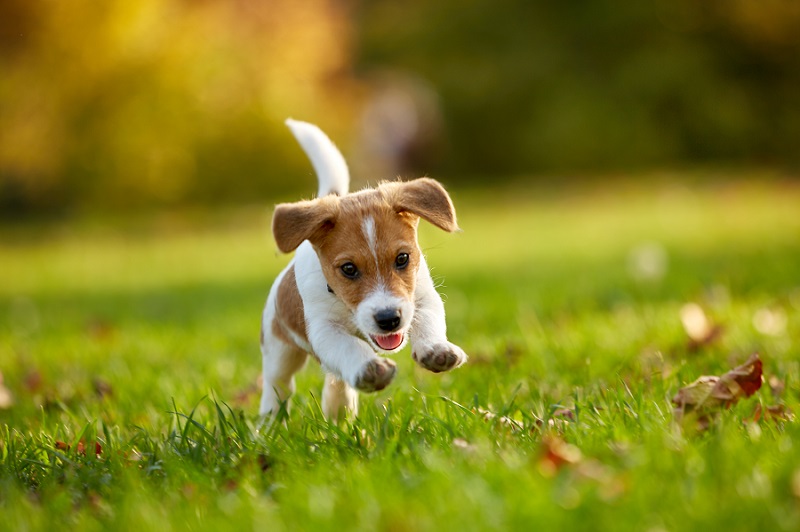Why is My Dog Eating Grass?

Dogs display interesting and confusing behaviors, and sometimes leave us scratching our heads. You have probably seen your dog chewing grass in the back yard and wondered why an animal with a meat-based diet would eat greenery. Pet owners ask veterinarians this question often, and there is no single answer, but rather many theories that attempt to explain this odd behavior.
The behavior of eating non-food items, including grass and dirt, is called pica, and is exhibited by many species, including humans. In people, pica is typically considered a compulsive behavior, but dogs may eat grass for a simpler reason. Although many people assume that dogs are carnivores, undomesticated dogs are natural omnivores who eat a diet of both meat and plant material. Wild dogs, such as wolves and coyotes, have been observed to eat grass, berries, and other plant material.
Some beliefs about why dogs eat grass include:

- Dogs eat grass to make themselves vomit — Grass ingestion is thought to cause vomiting, and dogs with an upset stomach may purposely eat grass to rid themselves of the offending irritant. However, a study published in Veterinary Medicine magazine found that only 8% of dogs exhibited signs of illness before eating grass, and only 22% of dogs that ate grass regularly vomited afterward. So, although eating grass may sometimes cause vomiting, the two likely are unrelated. It is also unlikely that dogs are displaying problem-solving behavior by eating grass to make themselves feel better.
- Dogs eat grass to make up for nutrients their diet lacks — Another theory posits that dogs eat grass to add fiber to their diet. The above study also investigated a possible relationship between diet and grass-eating behavior, and found that dogs who ate a lower-fiber diet were no more likely to eat grass than those who ate a commercial, balanced diet.
- Grass-eating is a natural behavior for dogs — With the lack of support for other theories, grass-eating likely is a natural biological behavior that is not typically associated with illness or dietary deficiency. Grass-eating may have evolved from wild dogs who ate plants to increase intestinal motility and to help eliminate parasitic worms from the body. Dogs may simply enjoy eating grass, or do so out of boredom. Regardless of the reason, grass ingestion seems to be a normal, harmless activity.
Is grass safe for my dog to eat?
Eating grass itself poses no danger to your pet; however, you should keep the following precautions in mind:
- Lawns treated with pesticides or herbicides may contain toxic chemicals that can make your dog sick. Ensure any chemicals you use are pet-safe, or follow the manufacturer’s recommendations if your pet needs to be kept off the grass after application.
- Intestinal parasites are passed through feces, and infective larvae are left on the grass even after the feces is picked up. Any larval parasites your pet ingests with a mouthful of grass can develop into an intestinal infection that can cause diarrhea, vomiting, and dehydration. Do not allow your pet to eat grass outside your own yard to reduce the risk of parasitic infection.
- Grass is safe for pets, but many plants are toxic and can cause severe illness if eaten. The American Society for the Prevention of Cruelty to Animals (ASPCA) Animal Poison Control Center provides information about toxic, and safe, plants.
- Eating materials such as mulch, sticks, and rocks can cause dangerous intestinal obstruction and should be discouraged.
If you have questions about your dog’s strange eating habits, or if you think he may be ill, call your family veterinarian or contact our hospital.
